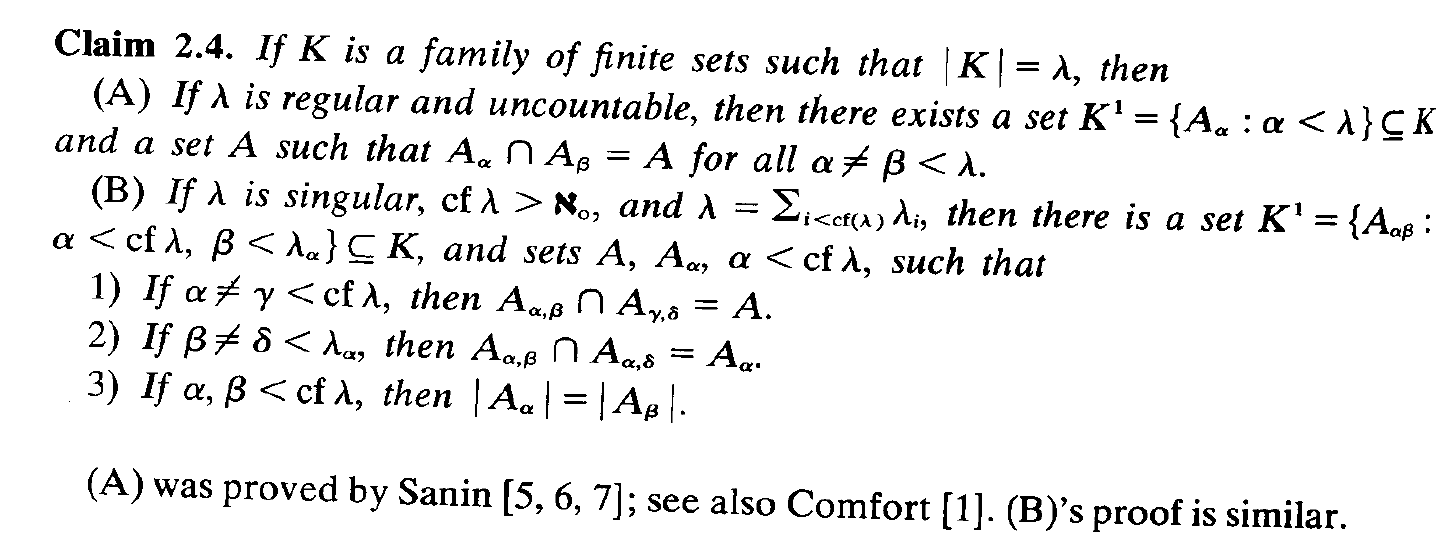In his article "Remarks on cardinal invariants in topology" (you can get the paper here: Where can I find the following S. Shelah's paper?), Saharon Shelah states the following claim: 
(A) is simply the classic version of the $\Delta$-system Lemma. I have been trying to prove (B) and have not succeeded; also, I've looked in the usual set theory books to see if it's written somewhere, but I haven't had any luck here either. I can prove 2) and 3) by assuming that the cardinals $\lambda_\alpha$ are regular and uncountable (which is fairly reasonable since $\lambda>cf(\lambda)>\omega$), but I have failed to argue that 1) is also possible.
In this case, any help is welcome: an argument for 1) or any reference would be great.
